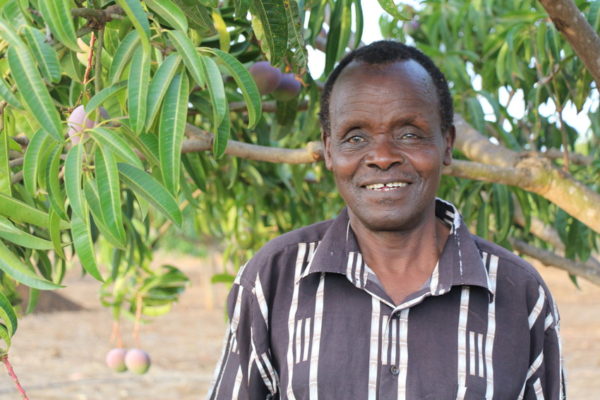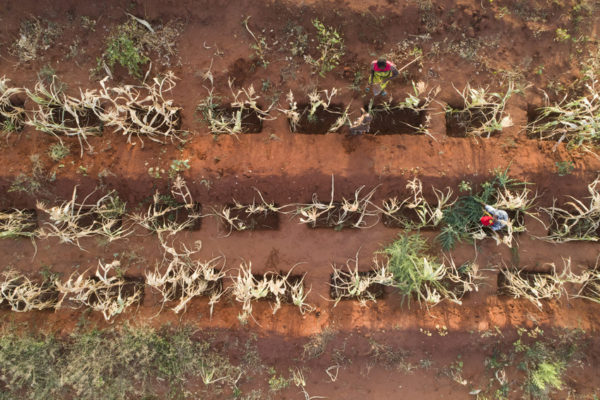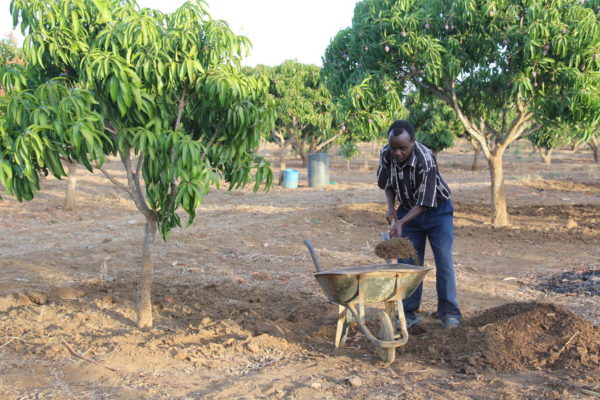The New York Times recently reported that changing climate conditions and accompanying droughts are once again pushing countries in East Africa to the brink of famine.
The page one article highlights the severity of the situation: people trapped in a cycle of poverty are now struggling even more because the land they depend on for survival is often too dry for growing crops and there is not enough water to support livestock.
Julius Ndemange, a 65-year-old farmer in Makueni County, Kenya, lives in this harsh reality every day.

“When you grow maize, if the rains fail, you fail,” he says.
As part of the Lutheran World Relief program in his community, Julius and his neighbors are learning ways to cope with this new reality, especially the severe water shortage.
The methods they are learning are designed to capture as much rain water as possible and direct water straight to the crops’ roots.
For example, farmers are learning to create zai pits —shallow holes that are about 2 feet wide by 2 feet long and 2 feet deep with a mound of dirt on three sides to direct rain fall into the pit. Farmers plant five seeds in the pit — one in each corner and a fifth in the center — and then cover them with a mixture of soil and manure. The zai pits are effective for concentrating nutrients and water on a crop’s roots.

Farmers are also learning how to build terraces, which are especially useful on hilly land. The layered platforms slow the flow of water, reducing erosion and conserving water.
With better irrigated land comes more opportunity to diversify crops. Julius used to grow only maize, which is the primary crop grown throughout the region. Now he grows and sells mangoes, pigeon peas and cow peas. Crop diversification further improves soil fertility, resulting in better crop yields over time.

The effects of a changing climate in East Africa are tremendous. Despite all his efforts, Julius lost nearly 20 percent of his mango trees due to drought.
He is pressing on, as is Lutheran World Relief.
This work is reaching more than 38,000 people in Kenya and is directly supported by Lutheran congregations in the U.S. as part of Isaiah 58:10 – Project Kenya.


